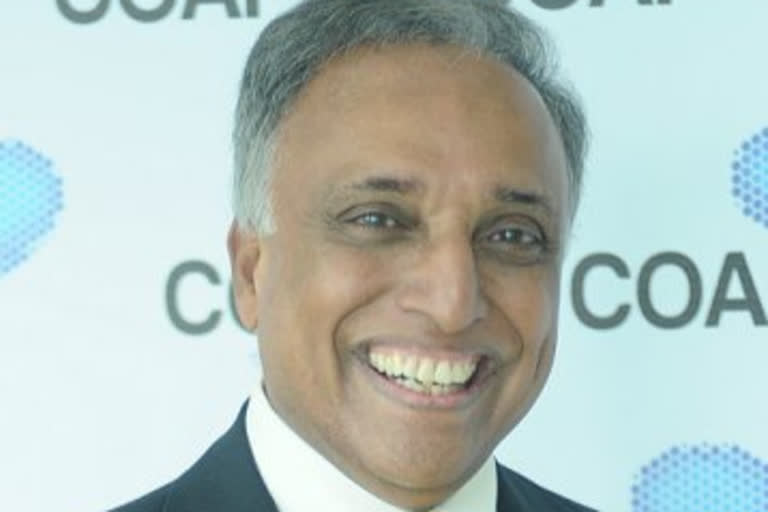New Delhi:As the Indian telecom companies reel through a severe financial crisis with huge AGR dues towards to the Centre still pending, COAI Director General, Rajan Mathews has said that there is an immediate need to revise the definition of adjusted gross revenue (AGR) in a prospective manner to avoid any further similar issues for the industry.
Speaking to IANS, the DG of Cellular Operators Association of India (COAI) contended that amending the definition in a prospective manner would not violate the Supreme Court's order and the Telecom Regulatory Authority of India (TRAI) had itself taken up with issue few years back but not much development has taken place on that front so far.
"Prospectively redefining AGR does not violate the Supreme Court's order at all. Why are we waiting, we know the damage it has caused, we know the problems, then why are we waiting and letting this problem simmer.... it is going to cause more problems, because again you have the same definitional issue and amounts of money that will be claimed," he said.
Telecom operators need to pay licence fee and spectrum charges in the form of revenue share to the Centre. The revenue amount used to calculate this share is termed as AGR.
As per the Department of Telecommunications (DoT), the AGR calculations should incorporate all revenues earned by a telecom company, including from non-telecom sources such as deposit interests and sale of assets. The telcos, however, challenged this and said that it should include only revenue earned through telecom services.
Read more:SBI closes 3 branches in Mumbai, Thane after spike in COVID cases among staff
Last October, the top court accepted the government's definition and ordered the telcos to pay the dues. As per DoT, telcos owed the government as much as Rs 1.47 lakh crore in past statutory dues including Rs 92,642 crore in unpaid licence fee, and another Rs 55,054 crore in outstanding spectrum usage charges.
Among the telecom majors, Jio has cleared its dues of Rs 195 crore accounted till January 31, 2020. The most affected have been Vodafone Idea and Bharti Airtel.
